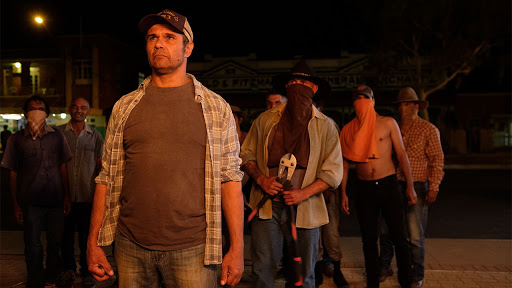‘Total Control’
The ABC has restated its opposition to being forced to comply with a local content quota or spending obligations, arguing that would undermine its independence.
The broadcaster pledges to spend a total of $70 million on scripted drama, including comedy and Indigenous, and $36 million children’s programming in the next two financial years.
But in its submission to the Federal Government’s ‘Supporting Australian Stories on Our Screens’ options paper review, it warns: “Continued investment in drama and children’s content at these levels beyond 2021/22 is likely to be unsustainable unless indexation of the ABC’s operational funding is restored and the enhanced news gathering program is extended.”
The ABC continues to support an increase in the Producer Offset to 40 per cent for TV projects and more funding for Australian documentaries that promote the arts, music, science, history, natural history, and religion.
It favours a transition from the hours-based local content quotas on the Seven, Nine and 10 Networks to a minimum expenditure requirement, which it says would ensure that Australian producers can continue to create a diverse range of content for a variety of platforms and broadcasters.
While it acknowledges the children’s sub-quota is no longer effective and should be expanded to include SVOD services and pay broadcasters, it does not support the proposal for an Australian Children’s Content Fund, financed by the commercial networks.
“It is unclear which platforms or producers would be the beneficiaries of the Content Fund. The ABC believes that, if content that is on a subscription service receives the majority of its funding from public sources, free access for all Australian children should be provided in the form of a second window on a free-to-air broadcaster, following a reasonable hold back period,” its submission says.
Criticising P and C content as not very attractive to the ABC or to international buyers as it skews very young, it supports a reclassification of the ACMA children’s guidelines to better reflect the appetites of children’s audiences and to reflect a platform-agnostic approach.
Illustrating the continued shift in audiences to online platforms, it notes that drama accounts for 28 per cent of total viewing on Broadcast Video On Demand (BVOD) services.
For example, the ABC/Blackfella Films’ Total Control drew more than one million viewers following the broadcast premiere, of which nearly 40 per cent came from encore screenings, time-shifting and ABC iview. Working Dog’s Utopia achieved a similar result with just over 40 per cent of viewing from non- broadcast audiences.
Over the last five years, the ABC spent $489 million on commissioning content with the Australian production sector across all genres, with total production budgets of $991 million.
In that period, the broadcaster invested an average of $42.8 million per year in drama, $14.9 million in documentaries and $17.3 million in children’s content.
The ABC acknowledged it has been forced to cut spending on factual and entertainment programming by $5 million this financial year due to the indexation pause, and that Screen Producers Australia estimated that would result in a loss of production of between $10 and $15 million per year and hundreds of job losses in the production industry.
“Given the challenging funding environment, these content types would benefit immensely from an increase in the Producer Offset and greater levels of direct support, as well as through direct ABC funding,” it says.
Its submission proposes a review of the frequency of Screen Australia’s funding rounds for drama and children’s funding applications, observing: “The currently limited number of rounds can increase financing timelines and complexity to production finance models, and potentially deter international finance. Continuous decision-making would better support production timelines.”


